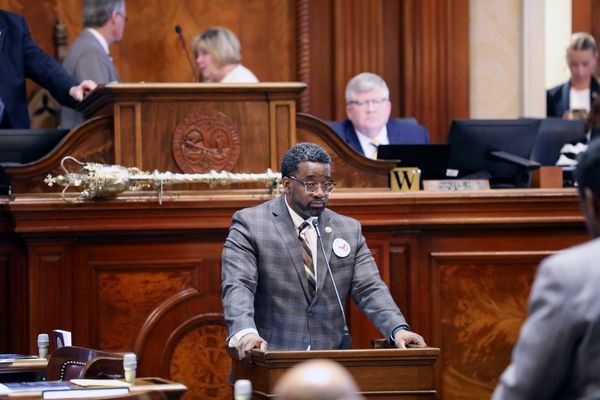
Keir Starmer has said Labour’s policy pledge to spend £28bn a year on green investment is “desperately needed,” as he re-opened an issue that has become a source of tension in the party.
Starmer and the shadow chancellor, Rachel Reeves, were planning to ditch the pledge, party sources had said as recently as last week, while the shadow chief secretary to the Treasury all but confirmed the move a day later.
However, comments from Starmer broadcast on Tuesday morning were welcomed by advocates of the pledge as a “recommitment” at a time when other senior party figures had declined to use the figure.
The Labour leader said in an interview with Times Radio that he had been “unwavering” in relation to the party’s green energy plans and denied he was “scaling back” policies as this year’s general election looms.
“We’re going to need investment, that’s where the £28bn comes in. That investment that is desperately needed for that mission,” he said
“You can only understand the investment argument by understanding that we want to have clean power by 2030 … We need to borrow to invest to do that.
“That’s a principle I believe in and I’m absolutely happy to go out and defend. And of course, what we’ve said as we’ve got closer to the operationalisation of this, is it has to be ramped up, the money has to be ramped up … and everything is subject to our fiscal rules.”
Zoë Billingham, the director of the IPPR North thinktank, said on X after Starmer’s comments emerged: “It’s reassuring that @UKLabour have recommitted to their £28bn green investment pledge. It a cornerstone of meeting climate goals & regional growth.”
Opposition to watering down the £28bn commitment has come from across the spectrum, uniting Labour MPs from the party’s left with others in the centre, while business leaders have also thrown their weight behind it.
They included Jürgen Maier, the former UK head of Siemens, the German industrial giant and major investor, who said last week that the proposed investment of £28bn a year in the low-carbon economy was an “absolute minimum”.
Labour sources have said the party would keep the core mission of investing in green infrastructure, as well as already announced plans such as the creation of GB Energy, a publicly owned clean energy company, and a mass home insulation programme.
But they added that the party would in effect cut its green ambitions by about two-thirds, given that the previously announced schemes are set to cost just under £10bn a year by the end of the parliament.
Starmer’s language contrasted with the approach taken in a series of media interviews after speeches by Reeves and Starmer to a conference in London attended recently by hundreds of business executives, in which the shadow chancellor was repeatedly asked about the £28bn figure and declined each time to back it.
Asked 10 times during an interview with Sky News, Reeves said of the plan: “I think what people need to know is that the fiscal rules are the most important thing for me … I know the importance of economic and fiscal stability and that will always come first.”







